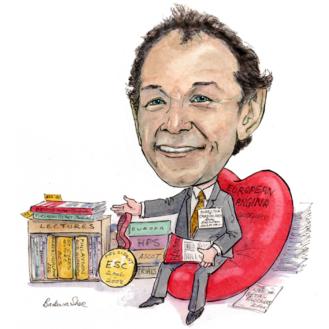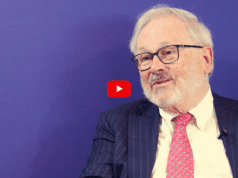
Cardiovascular News talks to Dr Kim Fox, immediate past-president of the European Society of Cardiology (ESC), about getting into cardiology, his interest in ischaemic heart disease and the future of cardiovascular medicine.
How did you get into cardiovascular medicine?
I didn’t sit down and decide to be a cardiologist like many people. I did my house jobs in the north of England and then there was a registrar job that looked interesting, and it stimulated me. I was able to do research in that job, which is unusual. I was in Hull in the north of England at that time and I managed to write a number of papers. I really got involved in cardiovascular medicine there, after that I came to London and worked at the Hospital for Sick Children, cardiology section, then the Hammersmith Hospital, and I’ve never left cardiology.
I fell into it and I find it very difficult how medical students say they want to be a cardiologist! It’s a big enough decision to say you want to be a doctor. I think chance plays a big role.
Who have been your mentors?
A big mentor was Professor John Shillingford at the Hammersmith, who was quite a formidable person. He was the first British Heart Foundation professor of cardiology ever. He was also the medical director of the British Heart Foundation and was one of the founding people there in the early days. He was very interested in research, and set up the first coronary care unit in Britain. He was a very good, powerful person to be your mentor – very non-European, a home-based kind of person.
Then there was Celia Oakley, also at Hammersmith, who I got on very well with. She was the most amazing clinician and could cover all aspects of cardiovascular medicine. I worked for quite a few years with Attilio Maseri, who is currently at San Raphael in Milan. He was a scientific mentor. My course was already is the area of coronary disease and I was always interested in angina and to work with Attilio put the seal on it.
What have been your proudest moments and highlights, across your career?
It has to be being President of the European Society of Cardiology and particularly this year’s ESC meeting when a lot of things seemed to come together. I was stepping down from being President but this meeting has been a huge success. I also had the opportunity of presenting a major publication, which was well received. It was as good a time as anything from a career point of view.
Working in cardiology itself was a highlight because it’s something I have very much enjoyed doing. The luxury of having a busy clinical practice and being able to expand and continue my research practice and that has led me to many opportunities in the UK, working with the British Heart Foundation on their executive committee some years ago, subsequently working at the British Cardiac Society on their council, becoming Associate Editor of the British Heart Journal (now called Heart), being Editor-in-Chief of the European Heart Journal, which led me to the ESC board and subsequently to President.
What research areas are you most interested in?
I’ve always been interested in ischaemic heart disease. The first paper I ever wrote was the use of beta-blockers and the protective effect that they may have in patients with angina and as such I’ve done a lot of research on pathophysiology and investigation of coronary disease. My MD was on excise testing in ischaemic heart disease. Then more recently my publication, BEAUTIFUL, at the ESC Hot Line was on secondary prevention and how we can try and reduce the frequency of myocardial infarction, which has been a theme throughout my career.
What do you think is in the future of cardiology?
I hope that the importance of cardiovascular medicine in the political arena really gets through. It’s beginning to get through that patients need to get involved in prevention as much as doctors and politicians. We can wipe out ischaemic heart disease, or at least mitigate it completely, primarily with prevention, a healthy lifestyle, so that it becomes part of people’s agenda. Secondly, if people have developed coronary disease we should apply the best prevention and the best treatment so the disease does not become a problem. At the ESC opening ceremony I said that all our children today should be able to expect to have a life free of coronary disease. That would be my goal.
Possibilities on the horizon include how we can better use molecular biology. If we could only identify which patients will respond to a treatment rather than having to treat everybody to protect a few would be a huge step forward.
Molecular biology may also help develop new treatments that will not only treat the condition once it has occurred but may actually work to prevent the condition progressing.
Education is very important, the important thing about education is that we now effectively have Europe as one continent, national boundaries are broken down and its very important that the education, certification, training and revalidation of doctors in cardiology, and the whole of medicine, is at the level of the highest common denominator so we can deliver the best care to our patients.
How do you like to spend your free time?
I would like to spend a little bit more time with my family. Given more free time, I would also like to have more time to think, to help me develop my clinical and research skills so that I can do better for my patients.










